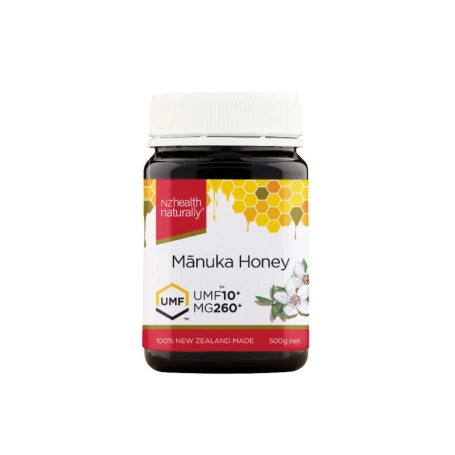Is Honey's Nutritional Value Really That High?

Honey has long been revered as "nature's golden nectar," valued not only as a sweetener but also for its rich nutritional profile and myriad health benefits. With an increasing emphasis on wholesome foods, honey has become a staple in health-conscious diets due to its natural properties and lack of additives. But does honey truly possess the impressive nutritional value attributed to it? This article delves into the components, health benefits, and essential precautions for consuming honey, aiming to provide clarity on this natural sweetener's true value.
The Nutritional Composition of Honey
Honey is composed of various beneficial nutrients, each offering unique health advantages. Let’s explore the main components found in honey:
1. Carbohydrates
The primary component of honey is carbohydrates, making up about 70-80% of its total weight. These carbohydrates are predominantly in the form of simple sugars, primarily glucose and fructose, which are quickly absorbed and utilized by the body to provide an immediate energy boost. Unlike refined sugar, the sugars in honey are natural and, due to its relatively low glycemic index (GI), cause a more stable blood sugar response. This has made honey a popular alternative for those monitoring their blood sugar levels, although intake must still be controlled.
2. Vitamins
Honey contains several vitamins, albeit in modest amounts. These include B-complex vitamins (such as B6 and B2) and vitamin C. B-complex vitamins assist with energy metabolism and nervous system support, while vitamin C acts as an antioxidant, safeguarding cells from damage caused by free radicals.
3. Minerals
Although honey’s mineral content is not extraordinarily high, it does include essential trace minerals such as calcium, potassium, magnesium, iron, phosphorus, and zinc. These minerals contribute to various bodily functions, such as maintaining pH balance and supporting nerve and muscle function. For instance, potassium helps regulate blood pressure, and magnesium supports normal nerve function and muscle contraction.
4. Enzymes
Honey is rich in naturally occurring enzymes like amylase, invertase, and glucose oxidase. These enzymes aid in breaking down sugars, enhancing digestion, and even imparting antibacterial properties. The enzyme activity in honey depends heavily on its freshness and storage conditions, as heating honey at high temperatures can reduce its enzymatic activity. Therefore, it’s recommended to consume fresh, raw honey to retain these enzymes’ beneficial properties.
5. Amino Acids
Honey contains small amounts of amino acids, including arginine, tryptophan, and aspartic acid. While present in lower quantities, these amino acids play crucial roles in supporting the immune system, protein synthesis, and metabolic regulation. Amino acids also contribute to honey’s unique flavor profile.
6. Other Compounds
Additionally, honey is a source of plant compounds and antioxidants, such as flavonoids and phenolic acids. Studies suggest that these antioxidants can help reduce oxidative stress, which contributes to the aging process and inflammation, offering potential support for cardiovascular health.
The Health Benefits of Honey
Beyond its nutrient profile, honey has several noteworthy health benefits, making it a powerful natural remedy for a range of conditions. Here are some primary health benefits associated with honey:
1. Provides Energy
Thanks to the simple sugars glucose and fructose, honey serves as a natural energy source that is rapidly absorbed, making it ideal for a quick pick-me-up. This characteristic has made honey a favorite among athletes and those with active lifestyles. A spoonful of honey can be particularly beneficial before or after exercise to help restore energy levels.
2. Moisturizes and Beautifies the Skin
Honey’s high moisture content and antioxidant properties make it a great option for skincare. Regular consumption can help keep the skin hydrated and supple. Furthermore, honey can be used topically as a natural skincare treatment, helping to smooth and soften the skin due to its antibacterial properties, which may reduce breakouts.
3. Aids Digestion
Enzymes present in honey support the breakdown of food, thereby aiding digestion and nutrient absorption. Honey also contains prebiotic fibers that foster beneficial gut bacteria, which are essential for a balanced digestive tract. For those struggling with constipation, moderate honey consumption may help promote regular bowel movements.
4. Strengthens the Immune System
Honey is rich in antioxidants and has antimicrobial properties that can help boost the immune system, enabling the body to defend itself against harmful pathogens. For example, honey contains glucose oxidase, an enzyme that produces small amounts of hydrogen peroxide, which acts as a mild antiseptic. Drinking honey in warm water can also help soothe a sore throat, providing relief from early cold symptoms.
5. Relieves Fatigue
Honey’s natural sugars provide quick, sustained energy that can relieve physical and mental fatigue. It also contains various nutrients that help the body cope with stress and exhaustion, which is particularly beneficial for people with demanding jobs or fast-paced lifestyles.
6. Improves Sleep Quality
The tryptophan and glucose in honey work synergistically to encourage the release of serotonin and melatonin, hormones responsible for regulating mood and sleep. Taking a spoonful of honey before bed helps maintain stable blood sugar levels and reduces nighttime hunger, which can contribute to improved sleep quality.
Precautions for Consuming Honey
While honey is highly beneficial, it’s essential to consider the following precautions to avoid potential side effects:
1. Not Recommended for Infants Under 1 Year
Honey may contain traces of Clostridium botulinum spores, which can cause botulism in infants under one year old due to their undeveloped immune systems. To prevent this risk, it’s best to avoid giving honey to babies under 12 months.
2. Diabetic Individuals Should Use Caution
While honey has a relatively low glycemic index, it still contains natural sugars, which can impact blood glucose levels. Diabetic individuals are advised to monitor their intake carefully or consult with a healthcare provider before including honey in their diet.
3. Allergy-Prone Individuals Should Be Cautious
People with allergies to pollen or bee products may experience allergic reactions to honey, including rashes, itching, and respiratory symptoms. If you have a known sensitivity to bee products, start with a small amount to see how your body responds.
4. Heating Can Destroy Nutrients
Honey’s enzymes and beneficial compounds are sensitive to heat. To preserve these nutrients, avoid heating honey to high temperatures, especially when adding it to hot drinks. Instead, use warm water to retain honey’s natural goodness.
5. Avoid Overconsumption
While honey offers numerous health benefits, it should still be consumed in moderation due to its high sugar content. The recommended daily intake is around 1-2 tablespoons. Consuming excessive amounts can lead to weight gain and disrupt blood sugar balance.

Bai Zi Gui Honey Products
At Bai Zi Gui, we are committed to providing premium honey products that are both natural and health-enhancing. Our honey is carefully sourced from reputable farms in Malaysia and other regions, ensuring that it is pure, unadulterated, and rich in nutrients.
Our range includes various types of honey, including multifloral honey and longan honey, all of which are ideal for daily consumption, cooking, or as part of a health regimen. Whether you’re looking to improve digestion, boost your immune system, or balance blood sugar, Bai Zi Gui’s honey products are your ideal choice. Visit Bai Zi Gui's website today to explore our wide selection of honey products and enhance your wellness journey.
Frequently Asked Questions (FAQs)
1. What’s the Best Time to Consume Honey?
Honey is versatile and can be consumed at any time. Many prefer it in the morning for an energy boost or in the evening to aid sleep. However, consuming honey in moderation and at times that suit your needs is best.
2. Can Honey Help with Weight Loss?
Although honey is a natural sweetener, it is not a low-calorie food. That said, it can act as a healthier substitute for sugar, helping reduce calorie intake from refined sugars. In moderation, honey can support weight management when used mindfully within a balanced diet.
3. Can Honey Help with Insomnia?
Yes, honey can be beneficial for sleep, as it promotes the release of serotonin, which the body converts into melatonin. A teaspoon of honey before bed, perhaps in warm milk, may help some people relax and fall asleep more easily.
4. Can Honey Be Used for Skincare?
Absolutely. Honey’s moisturizing and antibacterial properties make it suitable for skincare applications. It can be applied as a face mask to lock in moisture and reduce bacteria, helping to keep skin smooth and hydrated.
Conclusion
Honey, as a natural superfood, undoubtedly offers a wide range of health benefits, from boosting energy and immunity to supporting digestion and skincare. However, like any other food, moderation is key. By incorporating honey into your diet thoughtfully and considering any personal dietary needs or allergies, you can harness its health benefits effectively. For those looking for a wholesome addition to their diet, honey remains a fantastic choice, adding both nutritional value and flavor.
Whether you’re adding it to morning tea or using it as a natural sweetener, honey can enhance your overall well-being, provided it’s consumed responsibly. By understanding its nutritional profile and applications, honey can become an integral part of a balanced, health-focused lifestyle.

 Bahasa melayu
Bahasa melayu 中文
中文
























